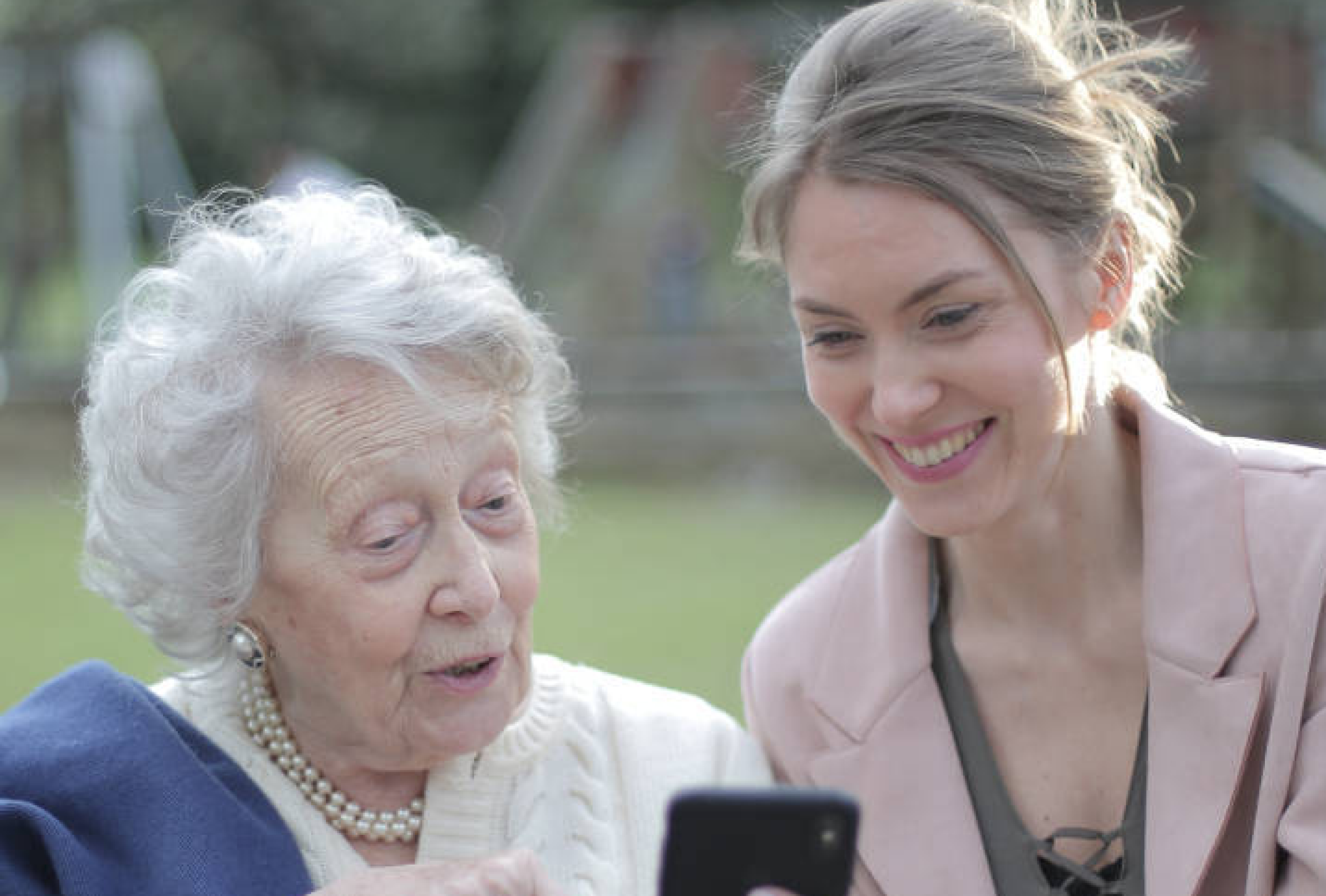- QPR Pathfinder Training
The Pathfinder training is designed to create a new workforce of certified suicide care first responders. Pathfinder training teaches willing hearts to identify those at risk early in a crisis and respond immediately with evidence-based and evidence-informed interventions known to reduce suicidal ideation and the risk of a suicide attempt.
Jack McClelland, MD · Danielle R. Jahn, PhD
ONE TIME COST OF
₹20,000
Pathfinder: one that discovers a way; especially one that explores untraversed regions to mark out a new route. Merriam-Webster
If a mental health condition becomes life-threatening, those thinking about suicide need someone who knows the territory ahead and how to keep them safe. They need someone who is knowledgeable, confident, fearless, and skilled in the use of science-based interventions proven to mitigate psychological pain and suffering.
Seasoned by lived experience, some Pathfinders can provide a unique kind of help to those in pain and help them navigate the unexplored and frightening territory of a mental health emergency they have experienced themselves.
Built upon basic QPR research foundations, Pathfinder training was developed over the past several years to address the global shortage of mental health professionals to cope with the public health problem of suicide. Explore a background article (5-minute read) @ A Misery Index for Global Suffering and the Need for a New Trained Workforce. A second article describing the program is in press at the Journal of Prevention.
Choose the version that’s right for you:
Adult and Older Adult Edition
Designed for those working with adults ages 25 and up, such as Peer Support Specialists, Caregivers, Crisis Counselors, or anyone working with at-risk adults. This course includes a special focus on late-life suicide prevention.

Veterans Edition
This version is designed for those working with Service Members, Veterans, and their Families (SMVF), especially in crisis response and peer support roles. Pathfinder training is intended to produce crisis responders who are competent and confident in their abilities to help others survive a life-threatening suicide crisis and help set them on a path to better mental health. Taught by veterans, this version of Pathfinder training is also suitable for Peer Support training for First Responder organizations.

Youth and Young Adult Edition
This version is designed for those working with youth and young adults, ages 10 through 24, especially in suicide intervention roles.

Lifespan Edition
This version is designed for Crisis Counselors, Peer Support Specialists, and anyone working with those at risk of suicide at any age.

Global problem, global solution
To meet the need for Pathfinders around the world – especially those in peer support roles and with a focus in resource-poor remote areas and developing countries – the institute developed four versions of Pathfinder training: Youth/Young Adult, Adult/Older Adult, Lifespan, and Veteran/Military.
These robust certification training programs will help build community capacity to respond to suicidal individuals at the local level. Offered only online, Pathfinder training programs are accessible via any device with an internet connection. Scalable through technology transfer, the training remains affordable, accessible, and available 24/7 in any time zone. The world may not have enough mental health professionals or the infrastructure, clinics, and hospitals to support their work, but it does have smart phones and smart, compassionate people willing to learn how to apply science-informed interventions to help their fellow citizens suffering from suicidal ideation and a desire to die.
Following WHO recommendations, the Guidelines for Training published by the National Alliance for Suicide Prevention, and employing science-based best-practices knowledge, skills, attitudes, and abilities, Pathfinder training targets anyone in any helping profession, but especially peer support non-professionals and those with lived experience.
With rigorous training, we believe Pathfinders can learn to identify developing mental health crises and apply effective interventions at the grassroots level. These interventions – when applied early to an in-progress suicide crisis – can change the trajectory of that crisis, mitigate its intensity, and help avert the need for emergency room admissions, specialty mental healthcare, and even hospitalizations. Pathfinder interventions should reduce suicide morbidity and mortality as well. Research is already underway to evaluate Pathfinder effectiveness.
Pathfinder certification will offer an important credential for those working on the front lines of the mental health movement and perhaps lead to a new professional workforce.
Who is to be trained?
Any willing person 16 or older, including those in their late years. Pathfinders will be recruited from the millions of QPR-trained citizens and anyone engaged in helping others in their community, and especially those in peer support roles, with or without lived experience.
How long is the training?
Training is 14+ to 20+ hours for the lifespan edition (2 to 3 days). Self-paced and engaging, beta testers and early adopters have given uniformly high marks to their learning experiences.
What is it like?
Pathfinder training is skills focused, built on nationally recommended core competencies, and comprehensive. We have addressed what is missing in most online training programs by employing our innovative scenario-based simulations in which learners must engage in multiple role-plays as they apply what they have learned to reduce suicide risk.
What is unique about the training?
Pathfinder training is highly interactive and uses the latest in e-learning technologies. The format includes multi-media video, interactive case studies, text, and dozens of real-world, scenario-based interactive gamified practice simulations to allow participants to test and demonstrate their mastery of the knowledge, skills, and attitudes known to be effective in helping people with suicidal ideation.The courses are taught by two or more expert faculty.
How is response readiness maintained?
High-frequency low-dose practice sessions (role-plays) are emailed to Certified Pathfinders every 45 days during the two-year certification period. Thus, Pathfinders receive a total of 26 “booster sessions” to reinforce their training over time.
How is the new workforce supported?
Pathfinders are supported by their parent organizations/supervisors with technical support provided by suicide prevention experts and faculty from the QPR Institute. Case-specific clinical consultation is not provided by the QPR Institute.
How much does it cost?
₹20,000 World Bank discounts to apply in low- and middle-income countries.
Each Pathfinder program covers a large at-risk cohort; youth and young adults, adults through the middle-aged, veteran/military and their families, and those at risk of suicide in late life.
If exploring our web pages, you will find new online courses created or expanded to meet profession-specific training requirements for emerging state licensure laws.

National Board for Certified Counselors (NBCC)
QPR Institute (QPRI) has been approved by NBCC as an
Approved Continuing Education Provider, ACEP No. 5889.
Programs that do not qualify for NBCC credit are clearly identified.
QPRI is solely responsible for all aspects of the programs.

QPR Pathfinder Training
Youth Edition
₹ 20,000
Those participants completing the version of the course should be able to:
- Describe youth at special risk for suicide, including LGBTQ
- Define & identify youth who may be experiencing first episode psychosis
- Describe suicidal behaviors in young children
- Recognize the role of bullying as a risk factor and complete a role-play
- Carryout multiple practice role-plays demonstrating the skills taught
You will receive your login credentials/an email from us within 24 hours of purchasing the course
Designed for those working with adults ages 25 and up, such as Peer Support Specialists, Caregivers, Crisis Counselors, or anyone working with at-risk adults. This course includes a special focus on late-life suicide prevention.
QPR Pathfinder Training
Adult/Older Adult Edition
₹ 20,000
Those participants completing the version of the course should be able to:
- Describe basic QPR Theory, Research and Practice
- Identify categories of serious mental illness and their relationship to suicide
- Know and identify the names and types of evidence-based Interventions for suicidal behaviors
- Outline and describe best practices in the assessment and management of those at risk for suicide in late-life
You will receive your login credentials/an email from us within 24 hours of purchasing the course

Program Description
The training is interactive, robust, multimedia, evidence-based and evidence-informed. It requires at least 14 hours, plus outside reading of a small book. This is a professional level course in basic mental health, crisis intervention, skilled interviewing, suicide risk detection, and suicide risk mitigation and management strategies, e.g., safety planning, means reduction, and caring contacts.
Designed to produce community-based mental health first responders able to deal effectively with people in a crisis of suicide, the training is built upon an evidence-based public health program that has been used to successfully train more than five million people over the past 20+ years. Thus, Pathfinder training is designed to produce a kind of “super gatekeeper” able to do much more than recognize someone in crisis and refer them to a professional.
In one role, they will be qualified to handle task sharing services shifted to them from mental health professionals, thus freeing up mental health providers to handle more severe or complex problems.
Following WHO recommendations, and by using the technology transfer of science-based best-practices knowledge, skills, attitudes, and abilities, the training program targets students in the helping professions, first responders, non-professional natural helpers and care providers, case managers, life coaches, volunteers across the age span, and those in peer support roles. Since helping others bolsters the helper’s own mental wellbeing, health benefits are expected to accrue in both directions. The program will offer an important credential for those working on the front lines of the mental health movement, and may open a new career path for many.